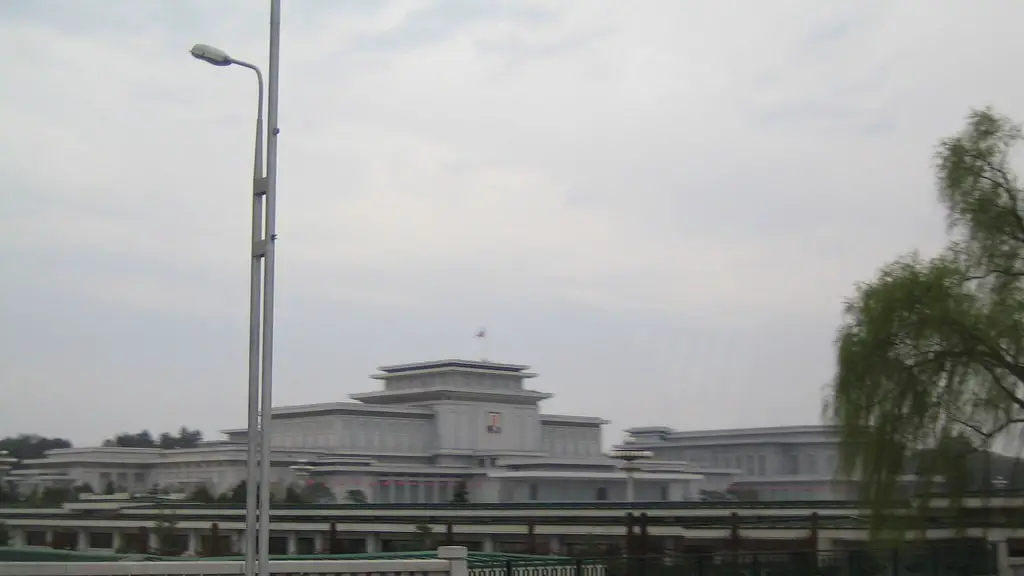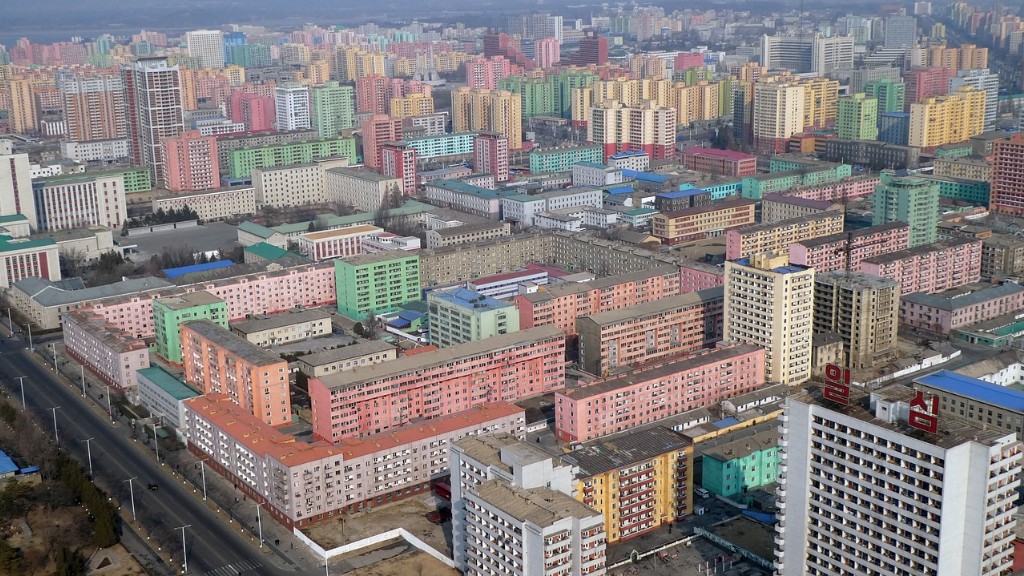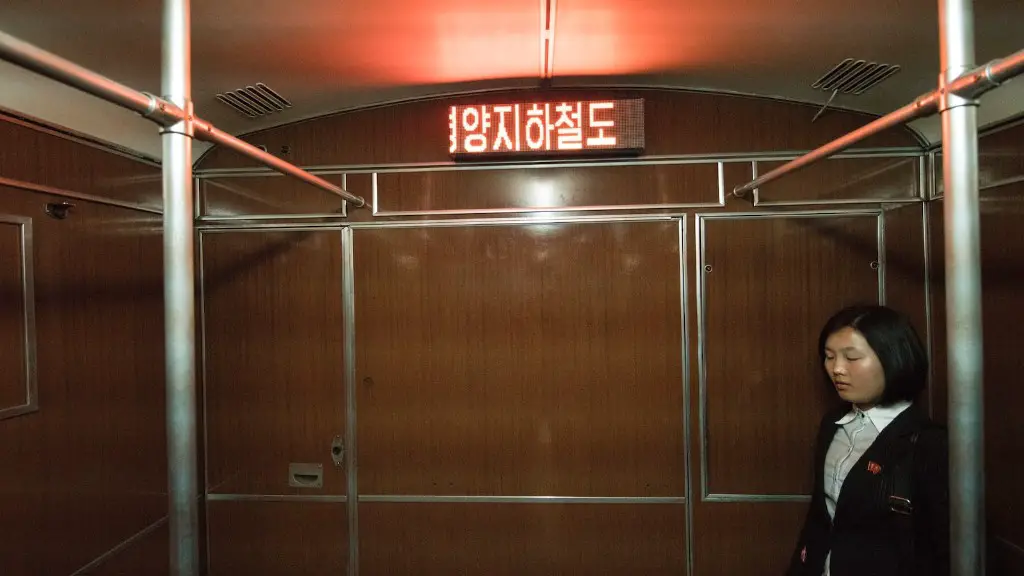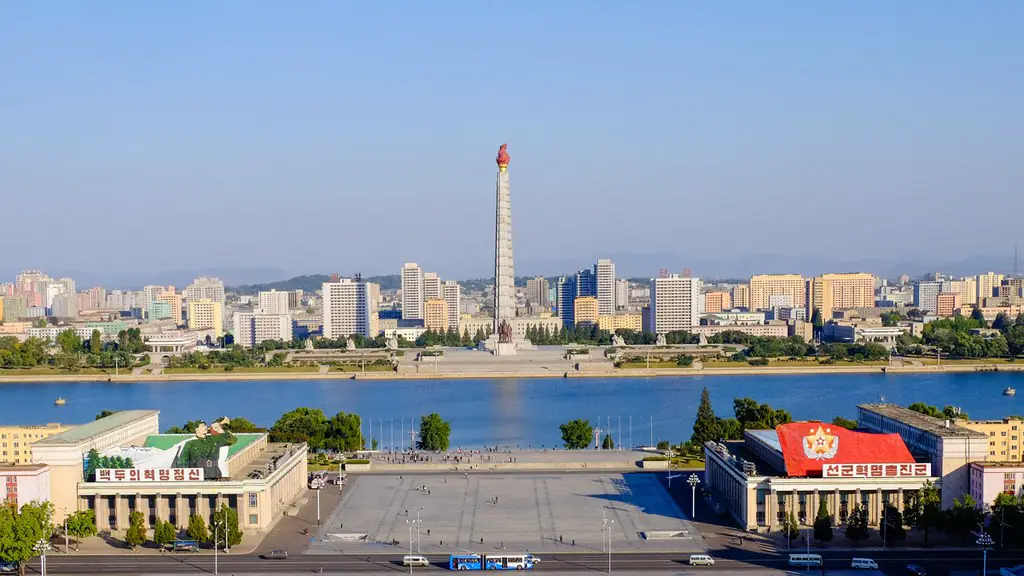It’s no surprise that North Korea’s nuclear weapons are an area of great concern to many people. While the hermit kingdom has long been an enigma to the outside world, recent events have shed more light on the country’s nuclear weapons capabilities. So, how many nuclear weapons does North Korea have in 2020?
Since the early 1990s, North Korea has been developing a diverse, secretive and often highly secretive nuclear program. After conducting five nuclear tests since 2006, North Korea has declared itself a nuclear weapon state, and made some impressive strides in its weapons program. Estimated numbers show that, as of 2019, North Korea may have as many as 30 nuclear bombs.
This number is based on an analysis from the Carnegie Endowment for International Peace, which states that North Korea has enough material to potentially produce 50 nuclear bombs—enough to satisfy the estimated 30 nuclear bombs evaluated by the International Panel on Fissile Materials. The analysis also noted that the number of warheads could have grown significantly since 2019, but no concrete evidence has surfaced to support the claim.
It is difficult to tell how many nuclear weapons are currently being stockpiled by the North Korean regime. After all, the country is shrouded in secrecy. Nevertheless, some experts believe that North Korea is capable of producing between 3-20 additional nuclear weapons each year, and that the current stockpiles could reach a total of 100 by the end of 2020.
In terms of delivery systems, North Korea is believed to have several ballistic and cruise missile systems, as well as various means to deliver a nuclear weapon. Most notably, the country has tested intercontinental ballistic missiles (ICBMs) capable of reaching both the United States and Europe. According to a report from the Bulletin of the Atomic Scientists, North Korea is likely capable of producing an ICBM that could reach the continental United States, although it’s unknown whether the country currently possess such missiles.
Furthermore, North Korea is reportedly in the process of miniaturizing nuclear weapons to mount onto ballistic missiles. These smaller warheads, if obtained, would grant the North Korean regime a significantly more advanced nuclear capability. Credible sources suggest that the North Korean government has advanced its miniaturization abilities to a point where such warheads could potentially fit on an ICBM.
North Korean Nuclear Intentions
It is difficult to ascertain the intentions of the North Korean government when it comes to its nuclear capability. Over time, the country’s nuclear reforms have shifted from self-proclaimed ambitions of deterrence, to more aggressive rhetoric. Despite Pyongyang often using its nuclear weapons as a tool for leverage and an indication of its military might, most experts agree that the regime is unlikely to use these weapons in offensive operations without serious provocation.
Since 2009, Pyongyang has repeatedly declared its readiness to abandon its nuclear weapons program in return for certain political and economic benefits, yet the country’s nuclear arsenal continues to grow. This discrepancy has raised the question of North Korea’s intentions, and why the regime continues to stockpile nuclear weapons even after making repeated pledges to denuclearize.
Recent attempts at dialogue, initiated mainly by South Korea, have been ignored by the North Korean government, meaning it is unclear if any progress can be made towards denuclearization in the near future.
U.S. Policy Towards North Korea’s Nuclear Program
In response to North Korea’s nuclear program, the United States and other regional powers have implemented various sanctions and other diplomatic measures. Since the 1950s, the United States has maintained a policy of non-tolerance towards proliferation of nuclear weapons, particularly concerning North Korea. The Obama administration, for example, sought to denuclearize the Korean peninsula through a ‘strategic patience’ policy, while the Trump administration took a more hardline approach, with limited success.
Sanctions and other measures have been implemented by the United Nations, United States and other countries, with the primary aim of preventing Pyongyang from developing its nuclear arsenal. From April 2019 until now, Pyongyang has largely complied with the UN sanctions, however, it has yet to take substantial steps toward denuclearization.
Recent UN reports suggest that North Korea is actively seeking methods to avoid international sanctions and to develop new weapons and missile delivery systems. The UN is currently monitoring these activities, and it remains to be seen whether Pyongyang’s actions can be reversed in the near future.
Regional Response to North Korea’s Nuclear Program
The threat posed by North Korea’s nuclear program has been met with various countermeasures from regional powers, including the United States, China, Russia, and Japan. To deter North Korea, the United States has reportedly conducted joint military drills with South Korea and deployed nuclear-capable planes and missiles to the Korean peninsula.
China and Russia, meanwhile, have sought to cool tensions between North Korea and the United States. China has recently eased some of its UN sanctions against North Korea, and is reportedly exerting greater influence on the hermit kingdom, particularly in the realm of North Korea’s nuclear program. Russia has assumed a similar role, mediating between North Korea, China and the United States, while hoping to open up trade channels with the North Korean regime.
Japan, in contrast, has been more hawkish on North Korea’s nuclear program, as it views Pyongyang’s missile tests as a direct threat to its security. Tokyo has condemned North Korea’s weapons program, and has urged the United States to take firm action against Pyongyang should it continue its current path.
Potential Risks of North Korea’s Nuclear Weapons
Despite North Korea’s nuclear weapons pose to regional powers, and particularly to the United States, the risks associated with this burgeoning arsenal are often underestimated. North Korea’s nuclear capabilities, if left unchecked, could enable the regime to project its military power far beyond its borders, while also granting it an unprecedented bargaining chip in international negotiations.
The threat posed by North Korea’s nuclear program could also push US allies, such as South Korea and Japan, to develop their own nuclear weapons, creating a nuclear arms race in the region. In addition, the secretive nature of North Korea’s activities, combined with its vast array of delivery systems, make them particularly difficult to detect and target.
Finally, the vast stockpiles of nuclear material in North Korea could be vulnerable to proliferation, either deliberately or by accident. In addition, North Korea could potentially weaponize its nuclear material, creating a serious risk of nuclear terrorism.
Recent Developments
Following the collapse of the most recent nuclear talks between the United States and North Korea, Pyongyang has been relatively quiet regarding its nuclear program. Recent satellite images, however, have revealed a flurry of activity at some of the country’s nuclear sites, indicating that the regime may be actively developing new warheads or delivery systems.
The recent developments have caused dismay among many experts, and prompted calls for increased vigilance and sanctions on North Korea. In addition, some have expressed concern that North Korea could increase its nuclear arsenal in order to gain leverage during future negotiations.
Impact of US Presidential Elections
The United States presidential elections in 2020 are expected to have a significant impact on North Korea’s nuclear program. Regardless of who wins the election, President-elect Biden has vowed to maintain the tough sanctions imposed on North Korea, while also pursuing diplomacy and engagement with the hermit kingdom. In their bid for re-election, the Trump administration may attempt to engage with Pyongyang to demonstrate its success in dealing with the North Korean nuclear threat.
Many experts agree that the United States’s policy towards North Korea’s nuclear program will be pivotal in determining the future of the Korean peninsula. Without concerted efforts from the United States and its allies, it is unlikely that Pyongyang’s nuclear ambitions will be curtailed anytime soon.





